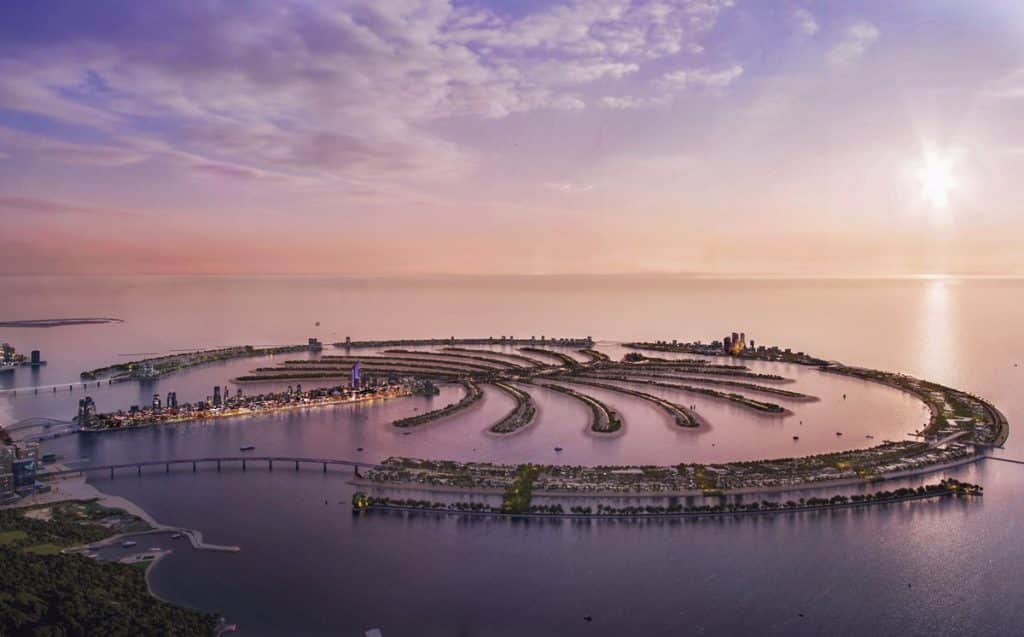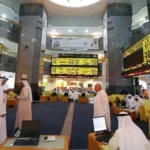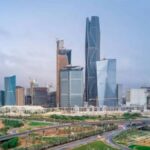Dubai’s real estate sector remains a magnet for global investment, with combined residential and commercial sales hitting AED138.8 billion ($37.8 billion) in Q3, as reported by Engel & Völkers Middle East.
Residential transactions surged by 40.8 percent year-on-year, contributing AED115.6 billion ($31.5 billion), while the commercial sector added AED23.2 billion ($6.3 billion) in sales, reflecting a 28 percent increase in total transaction value compared to the same quarter in 2023.
The flourishing real estate market in Dubai is supported by strong economic fundamentals, increasing foreign investment, and the emirate’s attraction for high-net-worth individuals and businesses.

This growth occurs within the context of the UAE’s projected economic expansion of 3.9 percent for 2024, expected to accelerate to 6.2 percent in 2025, propelled by key sectors including tourism, real estate, and international trade.
Daniel Hadi, CEO of Engel & Völkers Middle East, stated: “Dubai’s real estate market continues to demonstrate its resilience and appeal to a global audience, as both residential and commercial sectors are experiencing significant growth. The city’s strategic vision, business-friendly environment, and world-class infrastructure continue to attract investors from around the world. With demand for premium properties at an all-time high, and the government’s economic diversification initiatives bolstering growth in key sectors, we anticipate continued upward momentum across all real estate segments.”
The residential sector exhibited robust performance in Q3, with total transaction volumes increasing by 40.8 percent year-on-year, reaching AED115.6 billion ($31.5 billion). Off-plan properties constituted over 65 percent of total transactions, driven by the launch of new projects and heightened investor interest. In Q3 alone, over 30,000 off-plan units were sold, marking a 62.5 percent increase from the same period last year.
Communities such as Jumeirah Village Circle, Dubai Hills Estate, and Business Bay led the market, while new developments in areas like Dubai Creek Harbour and Sobha Hartland II garnered significant interest. In the secondary market, transaction volumes rose by 12.8 percent, demonstrating sustained demand for ready-to-move-in properties. Key areas like Jumeirah Village Circle, Dubai Marina, and Business Bay saw strong apartment sales, while villa and townhouse sales surged in Emirates Living, Al Furjan, and Mohammed Bin Rashid City, despite price increases exceeding 15 percent in many regions.

While there was a slight 6 percent decline in transactions over AED10 million ($2.7 million) compared to Q3 2023, Dubai’s luxury real estate market is still on track for a record-breaking year. The Palm Jumeirah, known for its exclusivity, recorded 110 transactions exceeding AED10 million ($2.7 million), including three surpassing AED200 million ($54 million). Notably, a penthouse sold for AED275 million ($75 million) exemplifies the ongoing appetite for ultra-luxury properties.
Established luxury neighborhoods like Mohammed Bin Rashid City and Dubai Hills Estate maintained strong demand, while emerging areas such as The Oasis and Palm Jebel Ali showcased the expanding allure of Dubai’s luxury market for high-net-worth individuals seeking exclusive properties.
In the commercial real estate sector, impressive growth was noted in Q3, with AED23.2 billion ($6.3 billion) in sales, representing a 28 percent year-on-year increase in transaction value. Office sales climbed by 12.6 percent, and retail transactions soared by 16.8 percent, indicating robust demand for premium commercial properties. Prime locations like Business Bay and Jumeirah Lakes Towers (JLT) continued to be favored for office spaces, reaffirming Dubai’s status as a global business hub.
Despite a minor 6.5 percent drop in overall commercial sales volumes, the transaction value has surged, driven by rising prices for high-quality assets. Additionally, the leasing market observed upward trends in rents, with office and retail rents increasing by 4 percent and warehouse rents jumping by 19 percent, reflecting strong demand in the industrial sector.
The leasing market across Dubai remains vibrant, bolstered by the city’s growing population. Areas like Jumeirah Village Circle, Dubai Silicon Oasis, and Dubai Marina led in rental transactions.

Even as more tenants opt to buy or renew their leases, rental prices continue to rise due to sustained demand, with many areas experiencing double-digit increases in average rents.
As the UAE economy is expected to grow by 3.9 percent in 2024 and reach 6.2 percent in 2025, Dubai’s real estate market is well-positioned for ongoing expansion. Government initiatives aimed at diversifying the economy, particularly in sectors such as technology, healthcare, and green energy, are anticipated to further drive demand across both residential and commercial markets.





